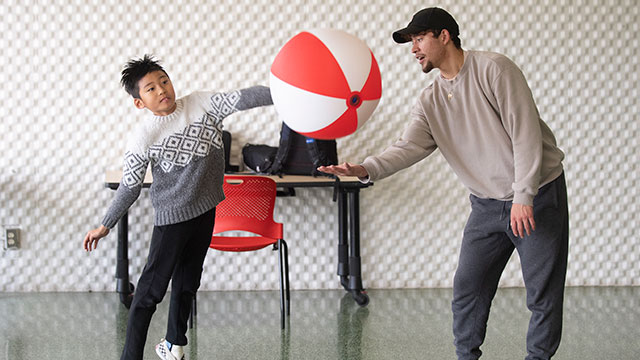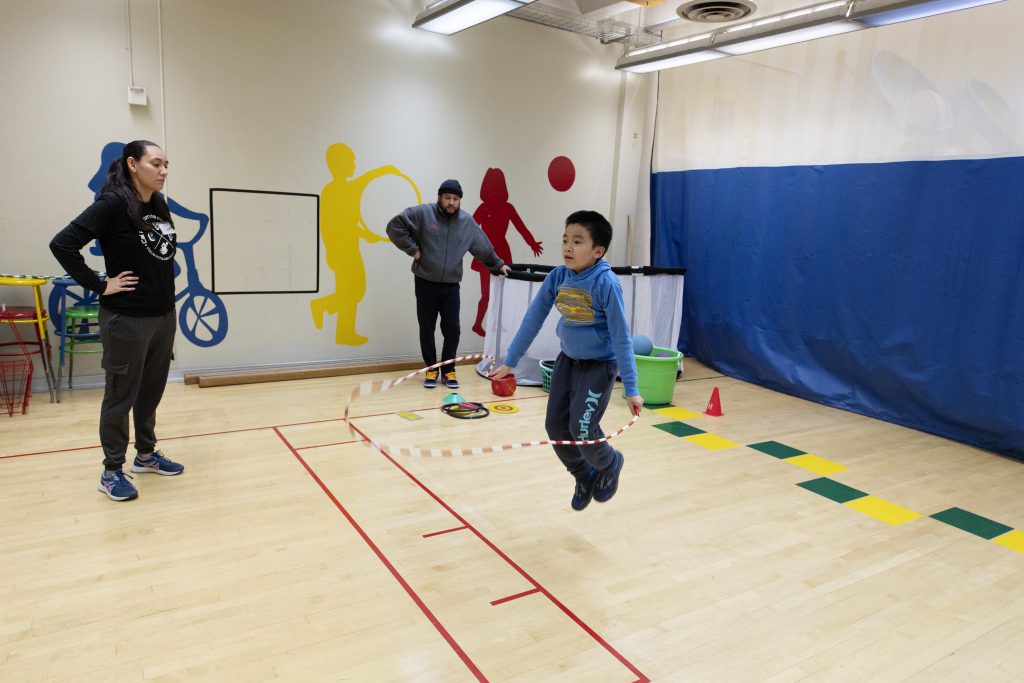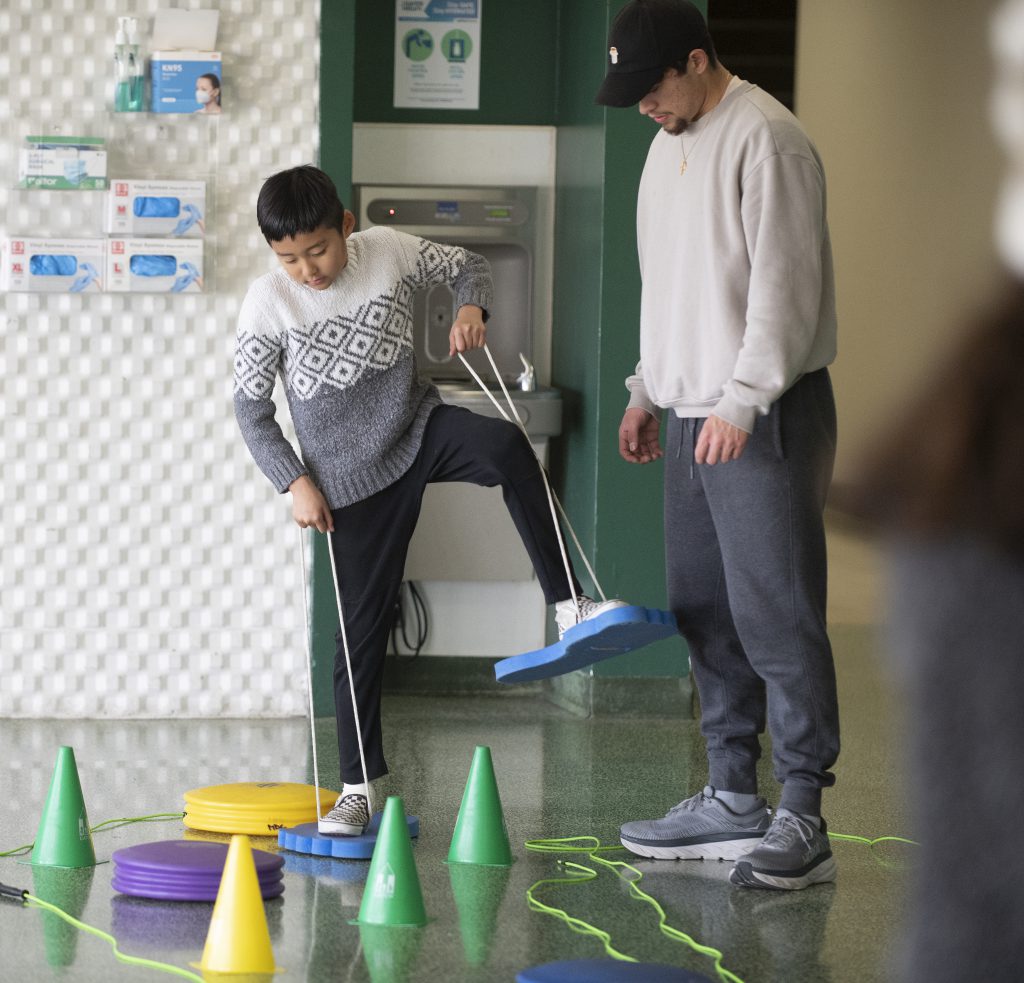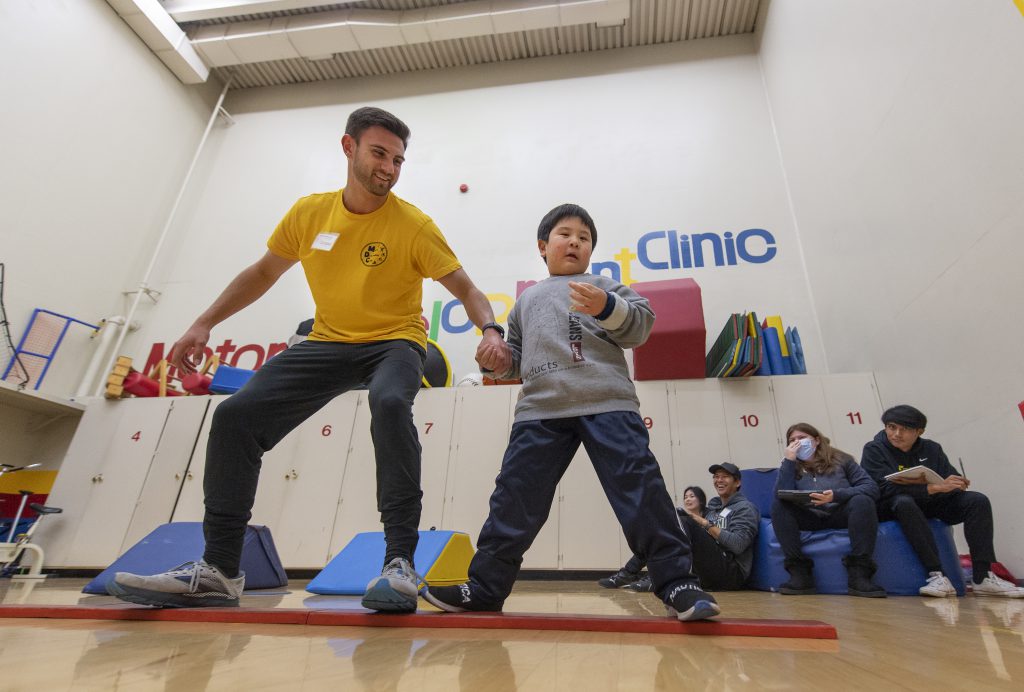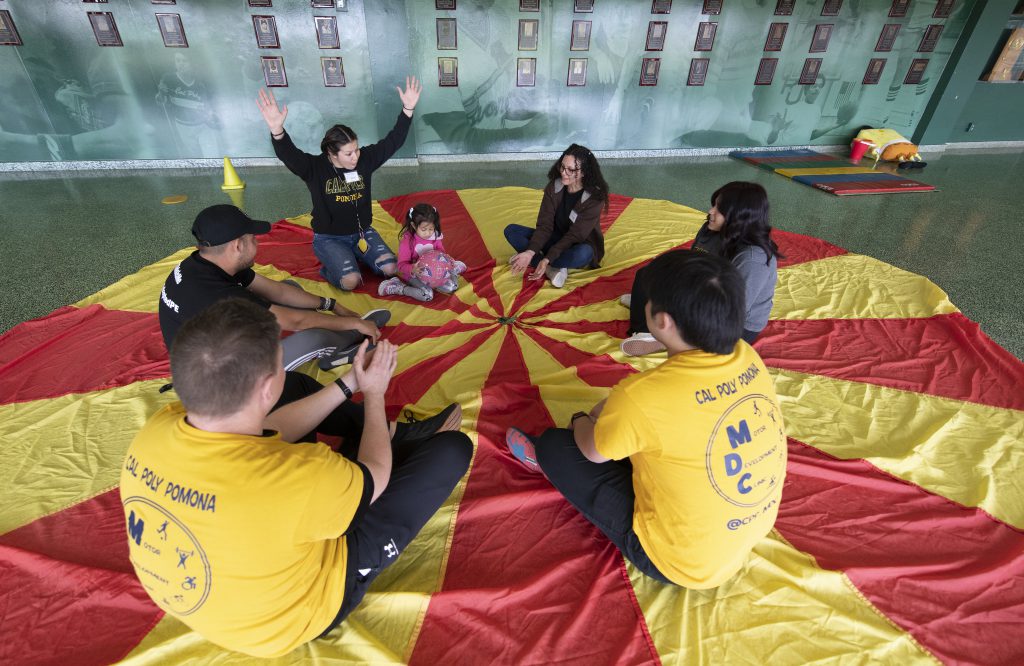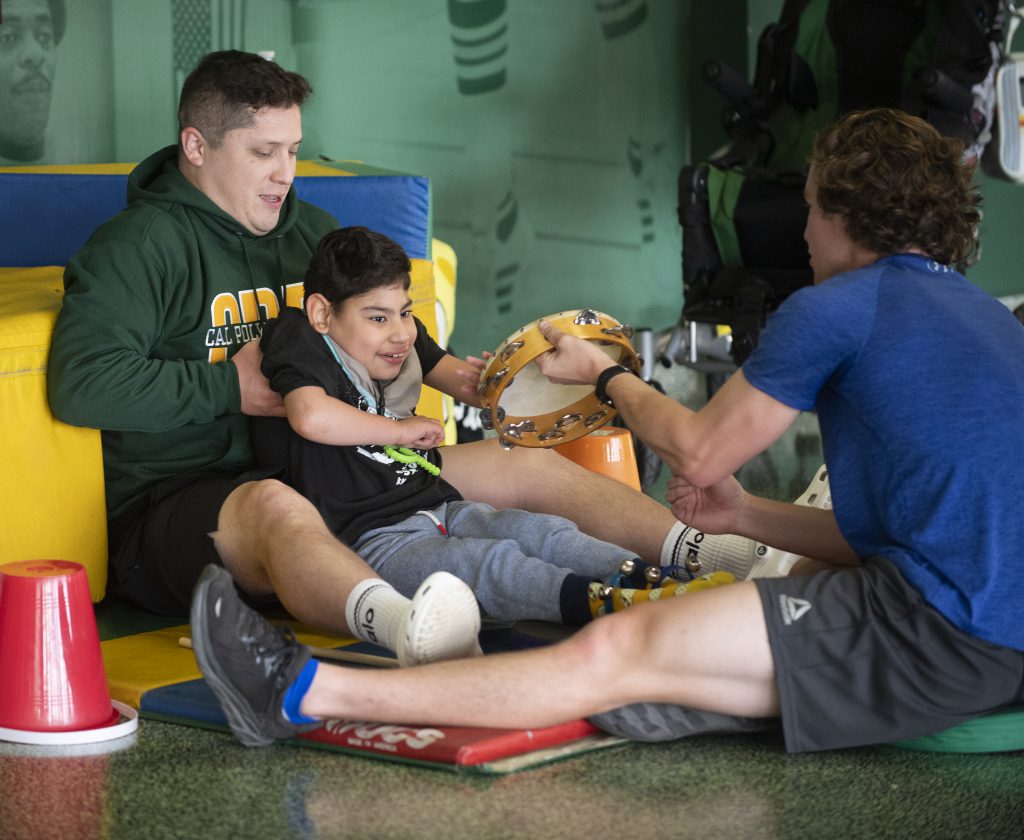Cal Poly Pomona's learn-by-doing philosophy is embedded in student projects and programs from a liquid-fueled rocket destined for space to the design of the award-winning Cal Poly Universities Rose Floats.
This philosophy also includes the hands-on work kinesiology students do with children and adults with disabilities at the Motor Development Clinic.
Since 1979, the clinic, located in the university's Kellogg Gym building, has been dedicated to improving children's motor skills and helping them fine-tune their cooperation, attention, and social skills. This year, the clinic started incorporating a fitness-based program for adults with disabilities as well.
In this new program, adult participants begin by spending 30 minutes working on strength and training in the conditioning room each session. They then participate in a different sport each week like sitting volleyball, adapted hockey, and adapted basketball.
"In adapted basketball, the adults don't have to dribble, but they shoot, and the basket is much bigger," said Assistant Professor Mai Jara, co-director of the clinic. "We modify the exercises so adults with disabilities can participate and enjoy these activities altogether, which is the goal of the adults program."
In addition to helping people in the community with disabilities, Assistant Professor Chloe Simpson, co-director of the clinic, explains that the clinic is important in providing early exposure for CPP students who aspire to be physical therapists, occupational therapists, doctors, or pursue other careers in the kinesiology field.
"According to contact theory, more contact with people with disabilities will give students more belief in their abilities to lead and work with them in their professional career," Simpson said. "Some of the students at the clinic want to become physical educators. Through working here, students will understand that their classroom will not just include 'typically developing students' and they will be prepared to teach the entire population using evidence-based practices."
Students who run the program earn class credit for their kinesiology degree. In the children's program, parents can provide input on what skills they prefer their child to develop, and students will work towards helping the child achieve them.
During the first week, students from the KIN 3460A class evaluate the children's motor skill level and design lesson plans to enhance that specific skill.
The students ensure that their lesson plans are not only effective but engaging for the children. If not, they would need to modify their plans. At the end of the program, students will re-evaluate the children's skills and note any progress.
Throughout progress sessions, students from KIN 2460AS will observe and assist KIN 3460A students in implementing their lesson plans. After successfully completing KIN 2460AS, students would gain the knowledge needed to directly work with participants and enroll in KIN 3460A the following semester.
Some skills that students frequently help children cultivate include running, skipping, kicking, throwing overhead, and dribbling.
Jara shared that one of the ways students help with learning to dribble a basketball is by blowing bubbles for the children to pop with their fingers. When children pop bubbles, they improve their hand-eye coordination which is a fundamental part of dribbling.
During one recent session, KIN 3460A student Richard Morales teaches a child to use their range of motion with their left and right hand. He gives extra focus to whichever hand needs more improvement.
Morales applauds CPP's learn-by-doing approach and is grateful for the clinic that is preparing him for his future career.
"I believe you don't know how to teach until you actually do it, which is why I'm so glad the clinic is providing me with the hands-on learning I need," Morales said. "I'm going to be using the experience I am gaining at the clinic in my future career as an adapted physical educator, hopefully at a school district."
After KIN 3460A, students have the option to enroll in KIN 4330, which is the adapted physical education motor assessment class.
Kinesiology post-graduate student Katelyn Alberry is currently in the KIN 4330 class. Alberry earned her bachelor's degree in kinesiology at Cal State Fullerton in 2020. She now attends CPP and is working towards her teaching credential with the adapted physical education added authorization.
KIN 4330 students are also involved at the clinic but focus on the assessment aspect. In her class, students are learning about signs to look out for if a child needs physical accommodations and how to help physical educators learn to see those signs.
"My favorite part about working in the clinic is bonding with the participants," Alberry said. "After getting to know the participants we work with, we tend to develop more of a mentor-mentee dynamic rather than teacher-student."
Every year, the Motor Development Clinic holds 10-week sessions during the fall and spring. The clinic also offers summer sessions, which are more like a sports camp, that serves about 50 children.
In addition to students, parents of participating children are also thankful for the clinic. Amber Madrid is appreciative of the friendly environment and its positive impact on her five-year old son, Alexander.
"From a parent perspective, I think the clinic is important for children like Alexander who lack certain skills that are important for just being a kid like riding a bike or learning how to throw a baseball," Madrid said. "Those are things you would want your kid to know how to do. It's hard for me to teach these skills, but he's always learning while having fun at the clinic. Also, it's really cool to see CPP students cheering him on when he's making progress with developing his catching skills."
Visit the Motor Development Clinic website for more information about the programs offered.


